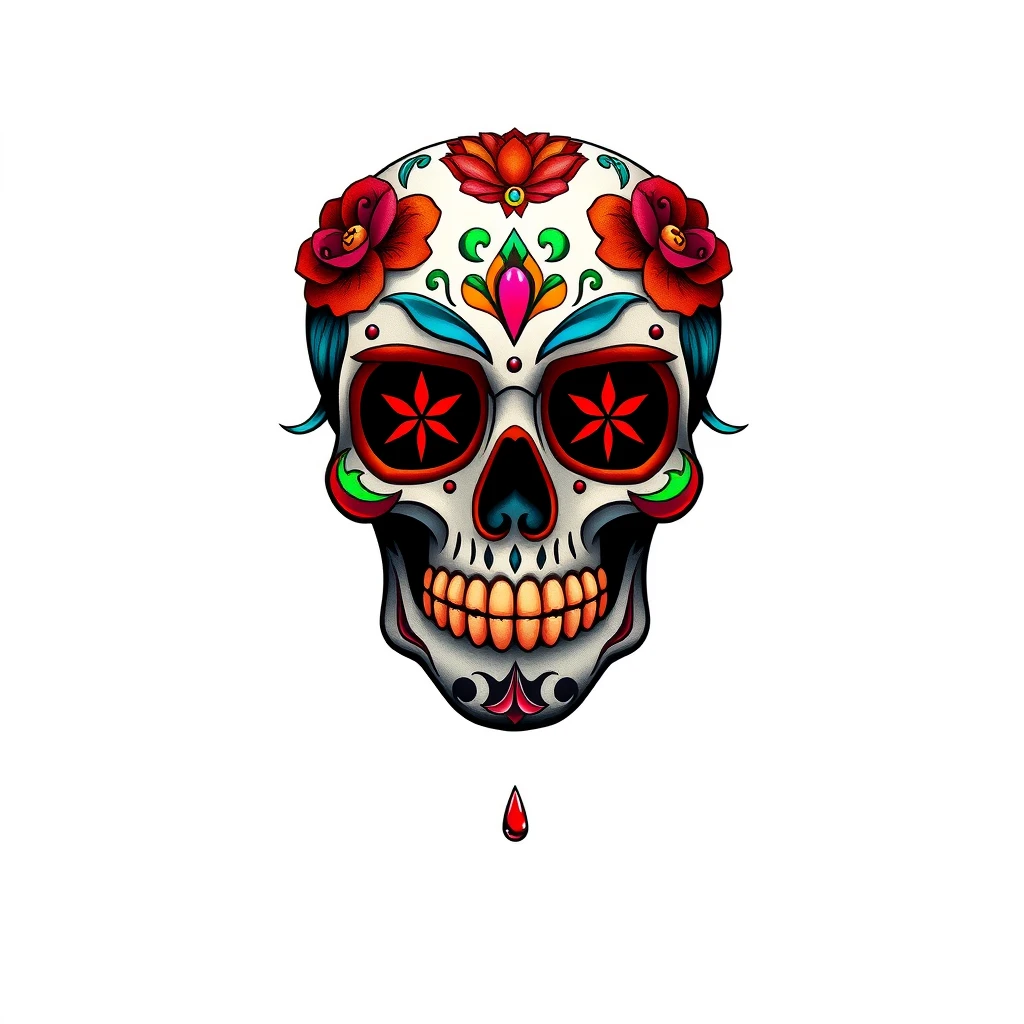The meaning of Sugar skull tattoos is rooted in the celebration of life, death, and the vibrancy of remembrance. These colorful and intricate designs are influenced by the Dia de los Muertos (Day of the Dead) festival in Mexico, where decorative skulls, often made from sugar, are used to honor deceased loved ones. Sugar skull tattoos encapsulate the idea of embracing mortality while celebrating the memories of those who have passed, making them popular choices for individuals seeking to demonstrate their connection to both life and death.
Symbolism of Sugar skull Tattoos
Celebration of Life
Sugar skull tattoos often represent a joyful celebration of life. The colorful decorations commonly associated with sugar skulls highlight the festive aspect of remembering loved ones who have died. This symbolic meaning encourages wearers to cherish their own lives while honoring those who have passed away, portraying death not as an end, but as a continuation of life in a different form.
Connection to Ancestors
An important aspect of sugar skull tattoos is the connection they create to one’s ancestors. Wearing a sugar skull tattoo serves as a visible reminder of one's heritage and the importance of family ties that transcend life and death. It symbolizes respect and remembrance for one’s lineage, reinforcing the idea that our ancestors continue to influence our lives in various ways.
Impermanence
The fleeting nature of life is another significant theme represented by sugar skull tattoos. These designs remind individuals of the impermanence of existence and the inevitability of death. By embracing this understanding, wearers can foster a greater appreciation for life’s moments, encouraging them to live fully and authentically.
Cultural Identity
Sugar skull tattoos also symbolize cultural identity, specifically within the Mexican and Latin American communities. They reflect a unique fusion of indigenous and colonial traditions, showcasing the rich tapestry of cultural history. For many, these tattoos signify pride in their heritage and serve as a celebration of their cultural roots.
Cultural Significance
Sugar skulls hold different symbolic meanings across various cultures:
- In Mexico, they are integral to the Dia de los Muertos celebrations, representing the cycle of life and honoring deceased family members.
- In some indigenous cultures, sugar skulls symbolize the interconnectedness of life and death, emphasizing respect for ancestors.
- They have been adopted in contemporary art and fashion, symbolizing a blend of cultural appreciation and modern expression.
Popular Sugar skull Tattoo Designs
- Traditional Colorful Sugar Skull: A classic design featuring vibrant colors, floral patterns, and intricate details that symbolize life and death.
- Minimalist Sugar Skull: A simpler version focusing on the skull's silhouette, appealing to those who prefer subtlety.
- Sugar Skull with Flowers: Incorporating flowers like marigolds, which are often used in Day of the Dead altars, enhancing the tattoo's significance.
- Personalized Sugar Skull: Tailored with elements significant to the wearer, such as initials or symbols representing loved ones.
- Abstract Sugar Skull: Artistic interpretations that may incorporate geometric patterns or surreal elements to convey a unique personal meaning.
The meanings behind tattoo designs can be deeply personal and varied. While Sugar skull tattoos hold specific cultural and symbolic significance, individuals are encouraged to interpret them in a way that resonates with their own experiences and beliefs. This personal connection transforms each tattoo into a unique story of remembrance and celebration.

